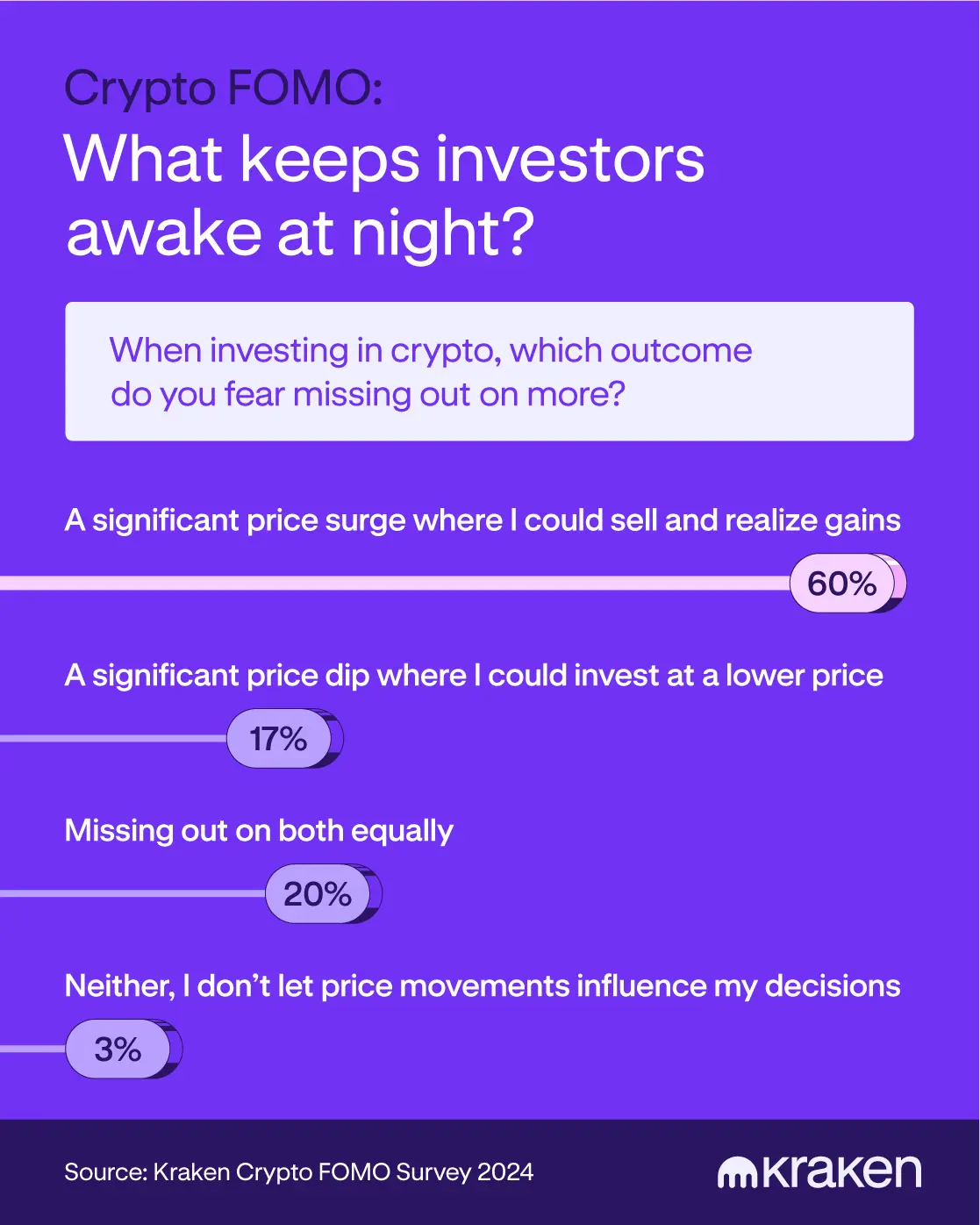Last updated:
 Why Trust Cryptonews
Why Trust Cryptonews
Ad Disclosure
We believe in full transparency with our readers. Some of our content includes affiliate links, and we may earn a commission through these partnerships.

A recent survey conducted by Kraken shows the significant role that emotional triggers like fear of missing out (FOMO) and fear, uncertainty, and doubt (FUD) play in shaping the current market cycle.
The survey, which analyzed the responses of 1,248 crypto holders, reveals that over 80% of participants admitted to making investment choices influenced by these emotional factors.
Kraken’s findings indicate that while FOMO drives 84% of crypto holders to chase surging prices, 81% have been swayed by FUD, causing hesitancy or panic selling.
Moreover, 63% of respondents acknowledged that emotional decision-making has negatively impacted their portfolios.
The Influence of FOMO and FUD on Investor Behavior
FOMO appears to have a stronger grip on crypto holders compared to FUD, with 60% of respondents admitting their primary fear is missing out on price surges that could lead to profits.

Comparatively, only 17% expressed concern about missing price dips, where lower entry points offer potential bargains.
This prioritization of short-term gains over strategic accumulation may explain why many investors buy during market highs rather than adopting disciplined approaches like dollar-cost averaging during price drops.
Interestingly, the survey also highlights the disproportionate influence of social media and fast-paced platforms in exacerbating FOMO.
About 61% of participants rely on sources such as social media influencers, news outlets, and crypto analytics platforms for market insights.
Of these, 85% admitted that emotional decisions tied to FOMO significantly hurt their portfolios.
The ease of accessing information, often incomplete or sensationalized on these platforms, contributes to the impulsive trading behaviors prevalent among crypto holders.
On the other hand, FUD leads to hesitation and panic among investors, driven by uncertainties about a cryptocurrency’s future or market downturns.
Kraken notes that these emotional responses are particularly damaging because they often result in poorly timed exits or missed recovery opportunities.
Optimism Persists Despite Emotional Pitfalls
Despite the widespread acknowledgment of FOMO and FUD as detrimental factors, the survey reveals a surprising optimism among crypto holders about the market’s future.
A significant 68% of respondents believe substantial gains are still to come, even as 64% feel they’ve missed out on the most lucrative opportunities.
Demographics play a notable role in these sentiments. Among participants aged 45–60, 78% strongly felt they had missed out on early crypto profits, yet 74% remain confident about future growth.
Similarly, while 67% of those aged 60 and above expressed regret about missed gains, 73% believe the market still holds promising potential.
Younger investors remain optimistic, though slightly less regretful, with 36% of 18–29-year-olds and 49% of 30–44-year-olds expecting significant future profits.
The survey also highlights gender differences in emotional investing.
Male respondents were more likely than females to make decisions driven by FOMO (66% versus 42%) and were more prone to regret their choices, with 70% of men feeling they missed major gains compared to 48% of women.
This could suggest that male investors, while more impulsive in their strategies, experience greater emotional consequences when expectations fall short.
Earlier this year, a new study published in the International Journal of Mental Health and Addiction highlights the risks of financial and emotional harm faced by crypto investors, particularly those with gambling tendencies or FOMO.
Based on a survey of 487 crypto investors, the study found that impulsive traits, rather than the amount of time or money invested, were the primary indicators of harmful behavior.















